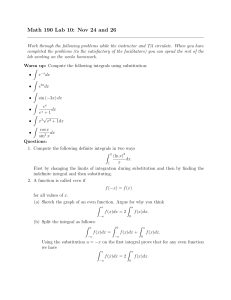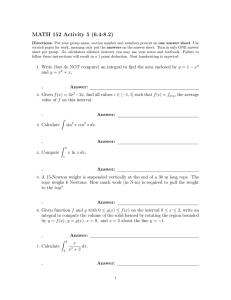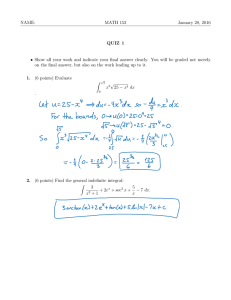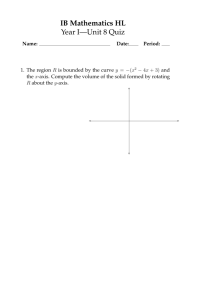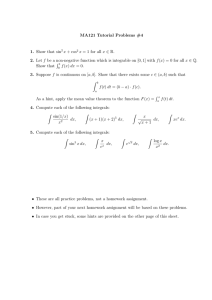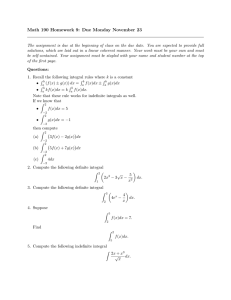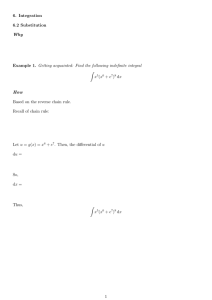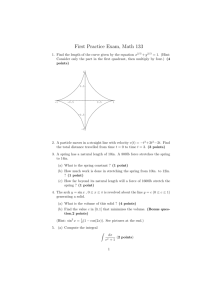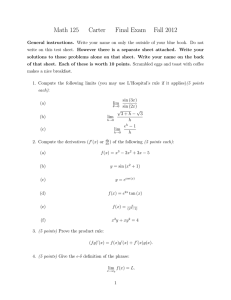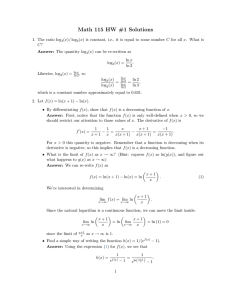Math 105/206 - Quiz 3, Feb 27 2015
advertisement
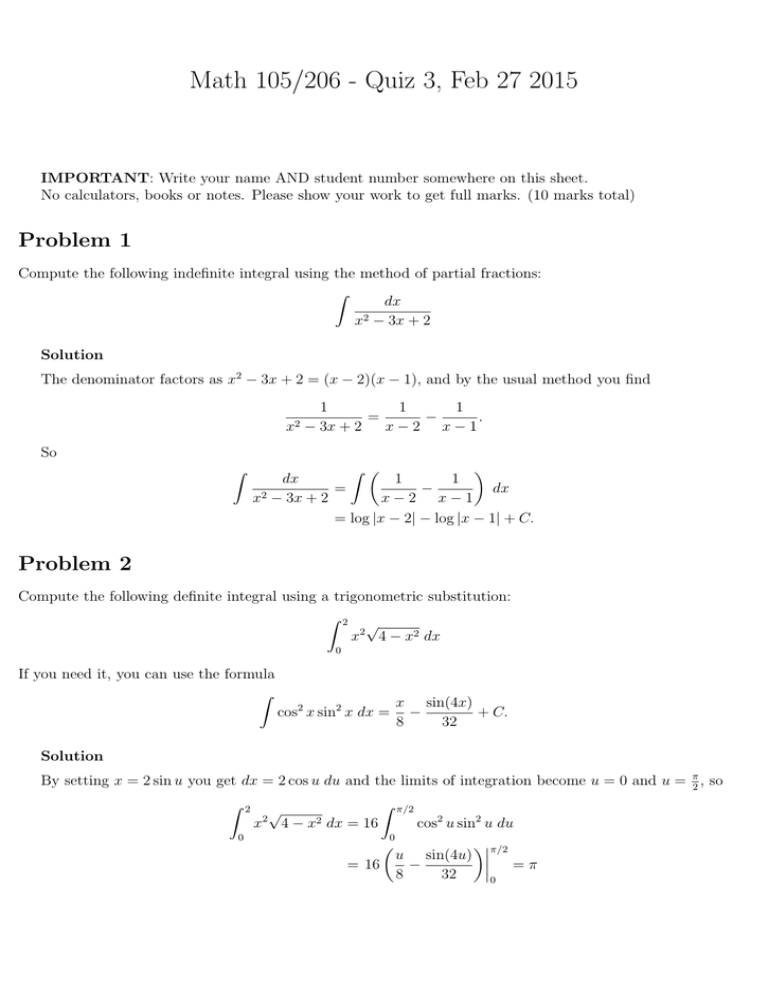
Math 105/206 - Quiz 3, Feb 27 2015 IMPORTANT: Write your name AND student number somewhere on this sheet. No calculators, books or notes. Please show your work to get full marks. (10 marks total) Problem 1 Compute the following indefinite integral using the method of partial fractions: Z dx 2 x − 3x + 2 Solution The denominator factors as x2 − 3x + 2 = (x − 2)(x − 1), and by the usual method you find x2 1 1 1 = − . − 3x + 2 x−2 x−1 So Z dx 1 1 = − dx x2 − 3x + 2 x−2 x−1 = log |x − 2| − log |x − 1| + C. Z Problem 2 Compute the following definite integral using a trigonometric substitution: Z 2 √ x2 4 − x2 dx 0 If you need it, you can use the formula Z cos2 x sin2 x dx = x sin(4x) − + C. 8 32 Solution By setting x = 2 sin u you get dx = 2 cos u du and the limits of integration become u = 0 and u = π2 , so Z 2 x 2 √ Z 4− x2 dx = 16 0 π/2 cos2 u sin2 u du 0 = 16 π/2 u sin(4u) − =π 8 32 0 Problem 3 Compute the following improper integral: Z 0 ∞ ex dx (1 + ex )2 Hint: use a substitution to compute the indefinite integral Solution By using the substitution u = ex + 1 we get du = ex dx and Z Z ex dx = u−2 du = −u−1 + C = −(ex + 1)−1 + C. (1 + ex )2 So Z 0 ∞ Z b ex ex dx = lim dx b→+∞ 0 (1 + ex )2 (1 + ex )2 = lim (−(ex + 1)−1 |b0 ) b→+∞ 1 1 1 = lim − b + = b→+∞ e +1 2 2 as eb + 1 tends to +∞ as b → +∞, so 1 eb +1 tends to 0.
